7+ Best Video Conferencing Software [Reviewed and Ranked]
COVID-19 definitely increased reliance on technology, especially virtual collaboration via video conferencing which made the need for video conferencing software go off the roof.
And there are a ton of options for these tools for businesses, organizations, and individuals, each with its strengths and quirks.
In this guide, we will review the best software for video conferencing and discuss the benefits of using them.
What is The Best Video Conferencing Software?
Here are my top picks for the best video conferencing software.
1. Zoom
One of the top contenders in the video conferencing software market is Zoom.
This platform is widely used for both personal and professional purposes and offers a range of features including screen sharing, virtual backgrounds, and the ability to host webinars.
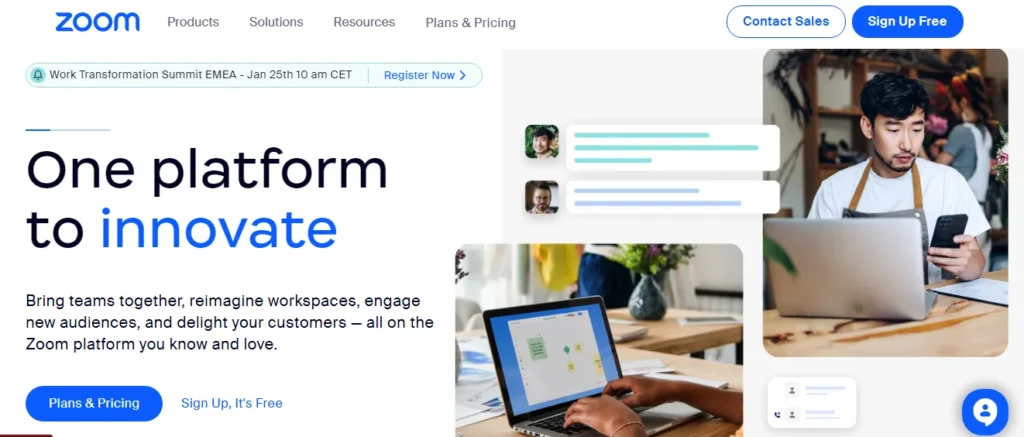
Zoom also has a strong focus on security, with end-to-end encryption and the ability to set passwords for meetings.
2. Google Meet
Google Meet, formerly known as Google Hangouts, is a solid video conferencing software of choice for those who are already heavily invested in the Google ecosystem.
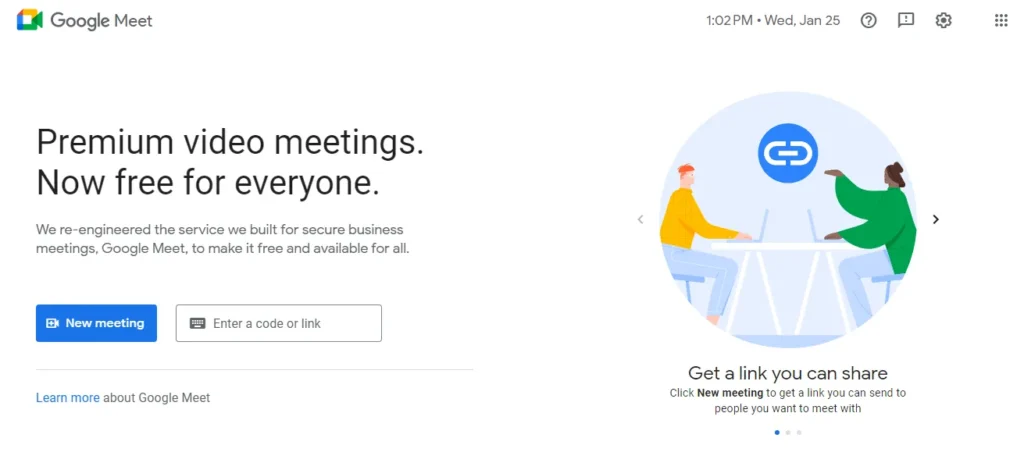
It offers a range of features including the ability to join meetings from any device, real-time captions, and the option to record meetings for later viewing.
It is also integrated with Google Calendar, making it easy to schedule and join meetings.
3. Skype
Another popular option is Skype, which is owned by Microsoft and integrates seamlessly with the company’s other products.
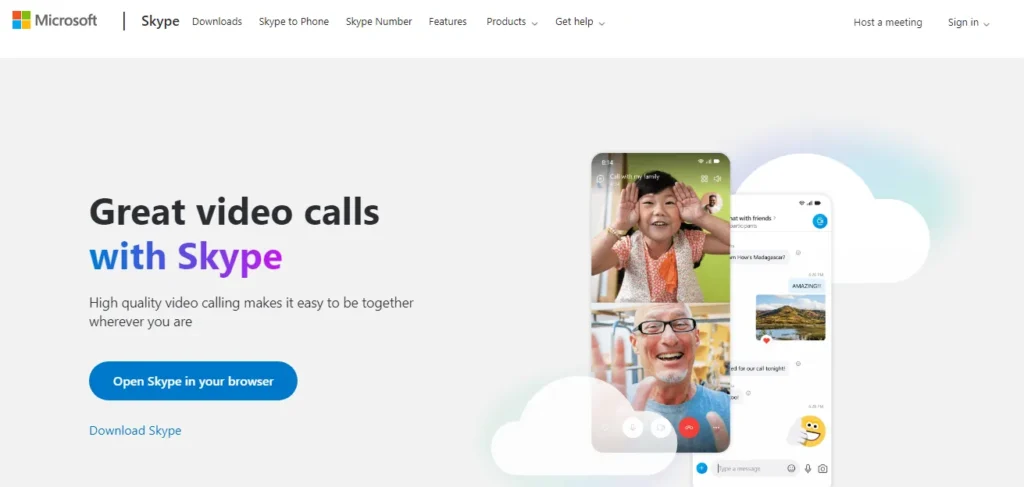
Skype offers video and audio calling, as well as instant messaging and screen sharing.
It is a versatile option that is suitable for both personal and professional use.
4. Cisco Webex

Cisco Webex is a more advanced option that is geared toward enterprise-level businesses.
It offers a range of features including the ability to host large meetings with up to 1000 participants, as well as the option to customize and brand the platform for corporate use.
5. GoToMeeting
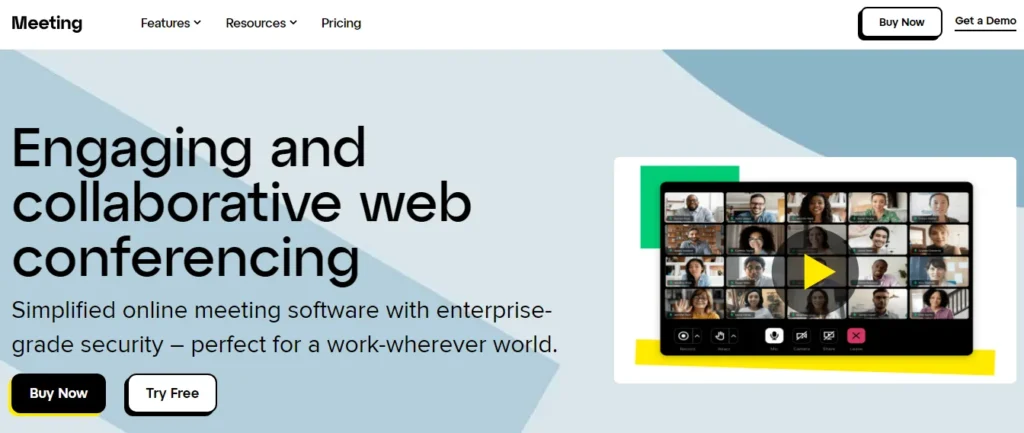
GoToMeeting is another popular option that offers a ton of feature options including screen sharing, annotation tools, and the ability to record meetings for later viewing.
It is suitable for both personal and professional use and can be accessed from any device.
6. Microsoft Teams
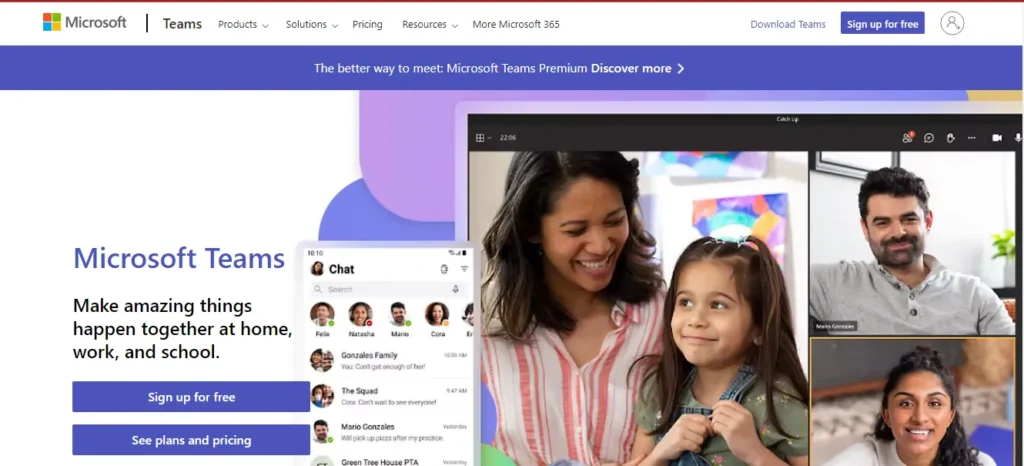
Microsoft Teams is not just a video conference tool but also a collaboration platform that is part of the Microsoft Office 365 suite of tools.
In addition to video conferencing, it offers features such as chat, file sharing, and integration with other Microsoft products.
It is primarily designed for use in businesses and organizations.
7. BlueJeans

BlueJeans Meetings is a platform that is designed for use in large enterprise environments with the ability to host meetings with up to 50,000 participants, as well as integrate with the popular calendar and CRM systems.
8. Google Workspace

Google Workspace, formerly known as G Suite, is a suite of productivity and collaboration tools offered by Google.
It includes Google Meet for video conferencing, as well as other tools such as Gmail, Google Docs, and Google Calendar.
Benefits of Using Video Conferencing Software
One of the benefits of using software for video conferencing is the ability to connect with others remotely.
This is particularly useful in the current climate where many people are working from home or are unable to travel.
Video conferencing also allows for greater collaboration, as it allows multiple people to work on projects together in real-time, regardless of their location.
Another benefit is the ability to save time and money on travel expenses.
With video conferencing, there is no need to physically be in the same location as others in order to have a meeting or discussion.
This can be a significant cost-saving measure for businesses.
Frequently Asked Questions About Video Conferencing Software
The best software for video conferencing will depend on your specific needs and preferences.
Some popular options include Zoom, Skype, Google Meet, Cisco Webex, GoToMeeting, Microsoft Teams, BlueJeans Meetings, and Google Workspace.
It is worth taking the time to research and compare the features of each platform to determine which one is the best fit for you.
Many video conferencing platforms have security measures in place to protect the privacy and confidentiality of meetings.
These measures may include end-to-end encryption, password protection, and the option to set up virtual waiting rooms to ensure that only authorized participants can join the meeting.
Some video conferencing platforms offer free versions with limited features.
For example, Zoom offers a free version that allows you to host meetings with up to 100 participants for up to 40 minutes.
However, if you need more advanced features or plan to host longer meetings, you may need to upgrade to a paid subscription.
Getting started with video conferencing is typically quite straightforward.
Most platforms offer a simple sign-up process, and many can be accessed via a web browser or through a dedicated app.
Conclusion
Video conferencing is single-handily powering remote collaboration.
And it is getting even more immersive, from virtual reality to augmented reality, mixed reality, video conferencing, to 360-degree video.
By considering your specific needs and preferences, you can make a choice from my list of the best video conferencing software.




